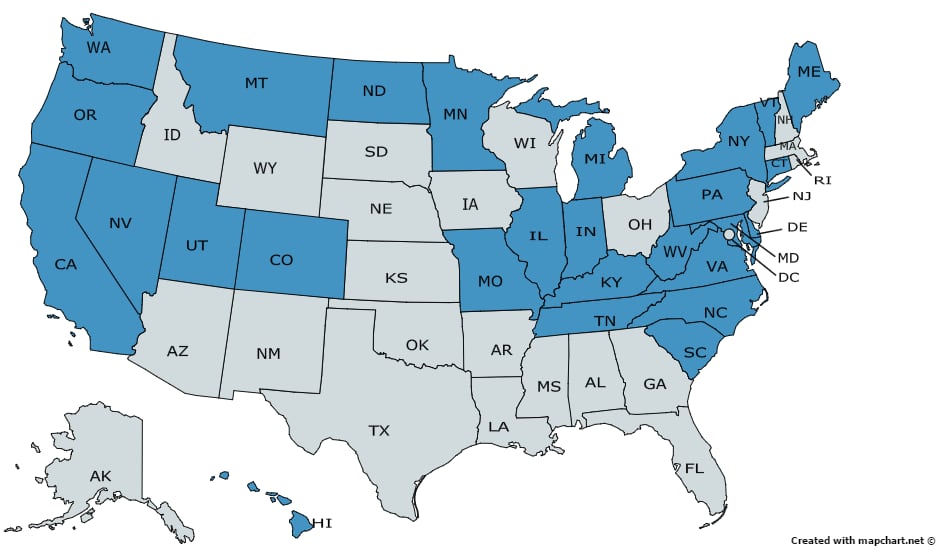“Sales of popular hemp items like non-dairy milk, shelled seed, soaps and lotions have continued to increase, complemented by successful hemp cultivation pilot programs in several states,” the association said in a press release.
For those unsure about its legal status, industrial hemp – a safe and legal food ingredient permitted in the US market - is not the same as marijuana, and it won’t get you high.
The confusion arises because hemp comes from Cannabis sativa, the same plant species as marijuana, but contains little to no THC, the psychoactive ingredient in marijuana that delivers the ‘high’.
Plenty buyers and makers, but (nearly) no producers
However, while it is perfectly legal to sell and consume foods and beverages containing hemp seeds in the US (which is the world's largest consumer of hemp products), the US is the only major industrialized country that outlaws domestic hemp production, say hemp food companies, who source most of their hemp from Canada and in some cases, China.
Where can hemp grow today?
In January of 2015, The Industrial Hemp Farming Act was introduced in both the House and Senate, H.R. 525 and S. 134 respectively. If passed, the legislation would remove all federal restrictions on the cultivation of industrial hemp, and remove its classification as a Schedule 1 controlled substance. Currently, 28 states may grow hemp per Sec. 7606 of the Farm Bill, which says hemp may be cultivate if "the industrial hemp is grown or cultivated for purposes of research conducted under an agricultural pilot program or other agricultural or academic research." The map to the left shows which states these are.
According to HIA, sale increases in the US have been driven in part by “successful hemp cultivation pilot programs in several states, and increasing grassroots pressure to allow hemp to be grown domestically on a commercial scale once again for U.S. processors and manufacturers.”
One such pilot program is in Colorado, where voters passed an amendment to the state constitution in November 2012 which eventually led to the passing of the Colorado Industrial Hemp Registration and Production Act.
A future for US Hemp
Hemp, which like chia contains short-chain omega-3 fatty acids, is steadily creeping into a wide range of food and beverage products, although hemp protein is primarily used in energy, protein and muscle recovery drinks, and snack/energy/granola bars.
As for its nutritional profile, hemp protein is high in arginine, which sports enthusiasts like as it is a vasodilator (arginine is a precursor to nitric oxide, which helps expand blood vessels and decrease blood pressure).

“Entrepreneurs, manufacturers, farmers, consumers are all on board to expand the hemp market. We need Congress to pass federal legislation to allow commercial hemp farming nationally, for this ripe industry to finally be able to bloom,” Executive Director of the HIA Eric Steenstra said.
